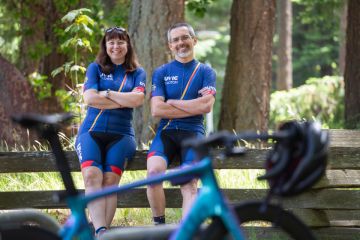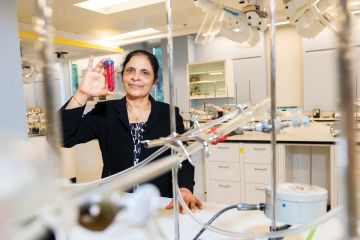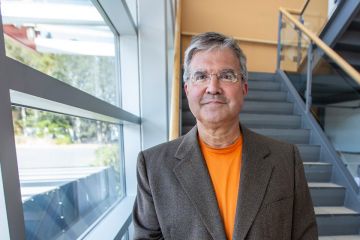UVic grad changes the face of cancer research
- Brigitte Dreger-Smylie

When most physicists are asked about their work, they explain with big words, abstract concepts and confusing theories. Ask Alexander “Quinn” Matthews and he’ll talk about the physics of cancer therapy and medical advances using terms that everyone can understand. Matthews is the top medical physics student to graduate from UVic in its history, and his communication skills are just one of the assets that have made him so successful.
His education began with an entrance scholarship to his undergraduate studies and he remained at the university for his graduate work, earning his PhD in October 2011. Though his schooling began in biochemistry and microbiology, it wasn’t long before he found his passion lay with physics. “I realized I had much more natural aptitude for physics and math courses than biology or chemistry courses,” he says.
After spending two co-op work terms in astronomy and particle physics, Matthews completed his final work term in medical physics with Dr. Andrew Jirasek, marking his beginning in the field in which he would eventually complete his PhD.
Matthews completed an MSc project in instrument development constructing from scratch a Raman microscope—an instrument that he optimized to provide molecular information at the single-cell level. Matthews’ contributions were a tremendous breakthrough for understanding cancer treatment, allowing researchers to better understand the effects of radiation therapy on the biochemistry of cells. His work will have a lasting effect on cancer research.
Throughout his time at UVic, Matthews found himself working with people from all medical disciplines, particularly while completing his PhD. This, he says, was one of the outstanding features of his time at the university. “My experience has been incredibly collaborative and interdisciplinary. During my graduate studies I collaborated with physicists and medical physicists, chemists and biochemists and microbiologists.” Matthews insists the collaboration was instrumental in helping him gain understanding of all the biological aspects of his graduate research project.
Matthews received a postdoctoral fellowship from the Michael Smith Foundation for Health Research for his work on Raman spectroscopy, and he plans to continue his research developing novel techniques for studying the effects of radiation therapy on cancer cells.
Photos
In this story
Keywords: cancer, medical physical
People: Alexander “Quinn” Matthews





